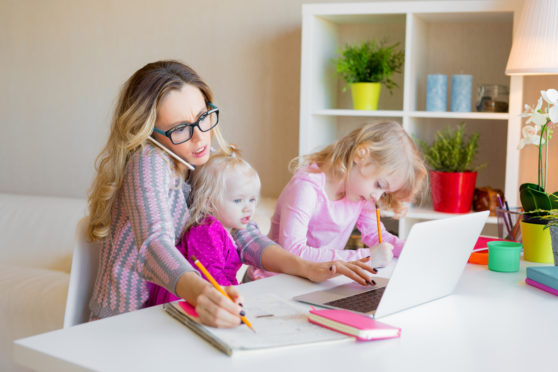These past weeks have been a challenge for all of us, whether you are adjusting to working from home with the kids around, dealing with a lack of social interaction due to self-isolation or are working as frontline staff in the NHS or emergency services.
However long the current UK lockdown lasts, there is undoubtedly going to be a need to maintain some measures for a while, so it’s worth looking at longer-term coping strategies.
Whilst the current situation is unique in many ways, from a mental health point of view it carries a lot of similarities to other stressful situations.
No matter the cause, the amount of uncertainty and the extent of disruption to our daily routines is bound to lead to an increase in anxiety and (unhealthy) stress levels.
In addition, being isolated whilst at the same time being cooped up at home with limited options of giving each other space can put a strain on relationships within families or anyone living together in close quarters.
So, how do we deal with these stressors? One of the most important things to do is to re-establish a sense of control. It may feel like your life has been taken out of your hands, but many aspects of it haven’t.
Making a plan for the day ahead, similar to a calendar of appointments or a to-do list at work, will give you and your family a structure to follow. This brings back a sense of normality. Having a structure to follow is especially important for children and young people.
What about that (mental?) list of unfinished jobs around the house and the garden? Or the list of movies you’ve always wanted to watch? With the whole family at home, now may be a good time to tackle these jobs, giving you a sense of achievement at the end of the day. At the same time, allowing yourself a ‘duvet day’ by staying in bed and talking things slowly may increase your motivation to tackle the next project the following day.
Where possible, include some kind of exercise, see some natural daylight on a daily basis both of which will help you sleep better and try and stick to a healthy diet – it’s easy to step into holiday mode at times like this but that can be a problem for the waist line!
Everyone reacts to stress differently, even within the same household. If you have existing mental health conditions, your reaction may be stronger than that of others. The same is true for children and teenagers, or those with chronic diseases who may worry about access to healthcare. Then there are healthcare workers themselves, who are not only busier than normal but also more closely exposed to the virus and its potential consequences.
Try to look out for and check in with people you care about, especially anyone who may have to self-isolate on their own. There has never been a better time to learn about and use all of the technical tools that allow us to connect online – or simply pick up the phone for a good old fashioned chin wag.
At the same time, it’s important to recognise that there is such a thing as too much information. Limiting your access to news and choosing reputable sources is key to keeping informed without increasing your anxiety levels unduly.
Finally, the uncertainty of the current situation is likely to lead some of us to fear for our existence. If you find that you are starting to feel overwhelmed by the levels of stress or anxiety you are experiencing and that talking to friends and family no longer helps, don’t wait. Get professional help either online or over the phone.
Whilst no one currently knows how long we will all be affected by the coronavirus and the consequences it has for our daily lives, it’s important to take small steps daily to look after yourself and your loved ones.
Professor Ewan Gillon is a Chartered Psychologist and Clinical Director for First Psychology Scotland with centres in Aberdeen, Inverness, Perth, Dundee, Edinburgh, Glasgow and Borders.

